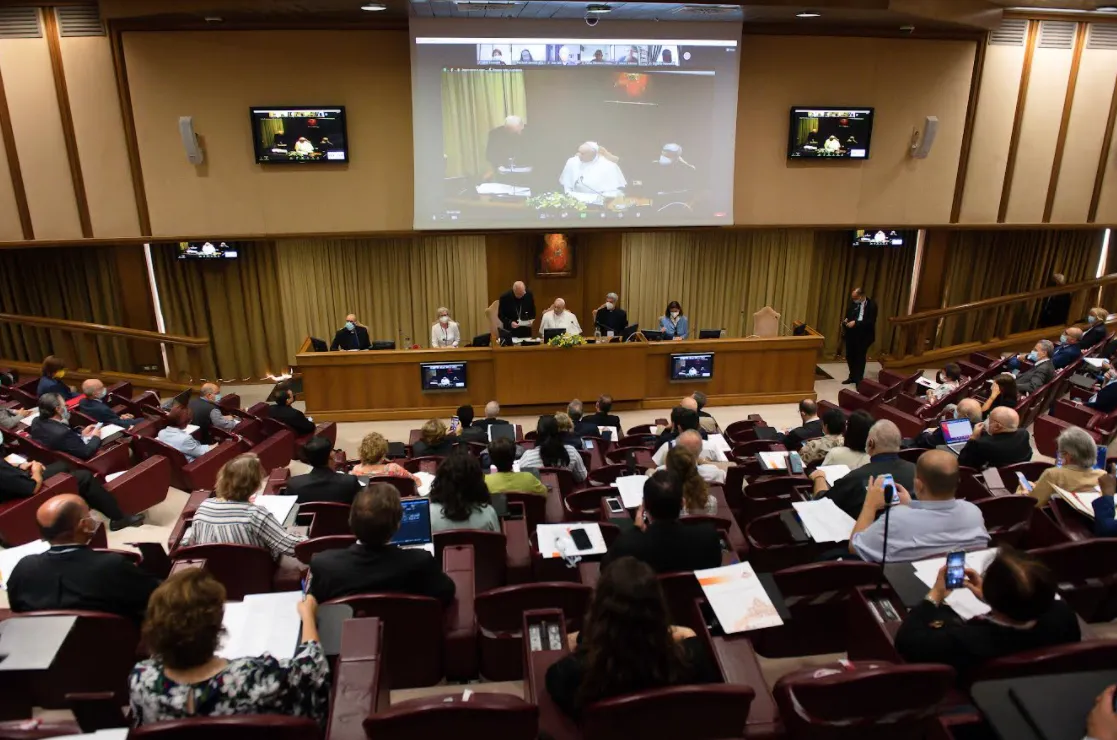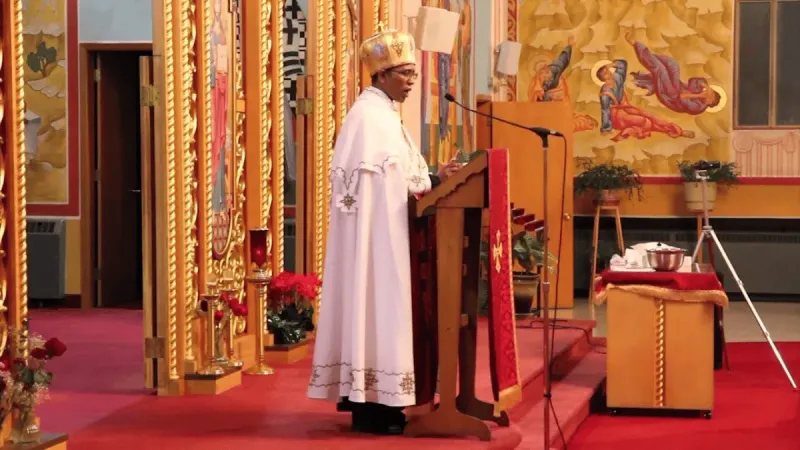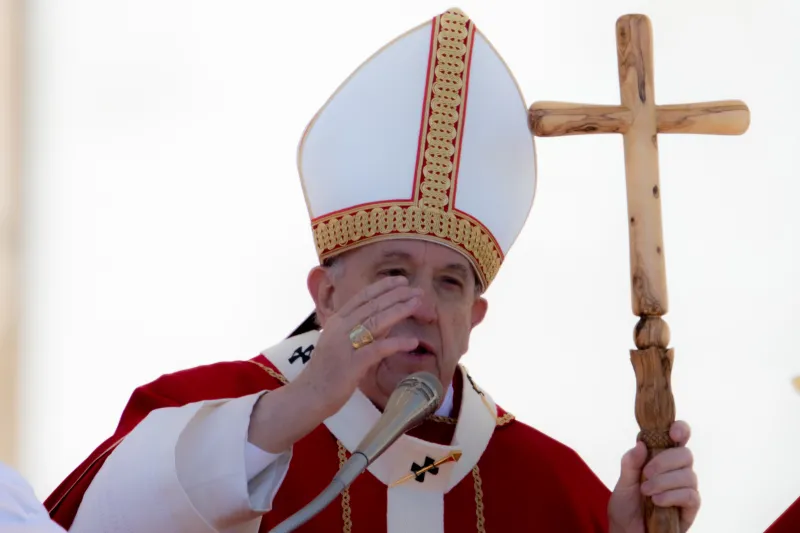
Vatican City, Sep 16, 2021 / 08:00 am (CNA).
Pope Francis warned representatives of Catholic movements Thursday that the desire for power and recognition are temptations that hinder their call to serve the Church.
In a meeting with the moderators of lay Catholic associations, movements, and new communities in the Vatican’s Synod Hall, the pope said that it is “disloyalty” when a leader “wants to serve the Lord, but also serves other things that are not the Lord.”

“In words, we say we want to serve God and others, but in fact we serve our ego, and we bow to our desire to appear, to obtain recognition, appreciation … Let’s not forget that true service is free and unconditional, it does not know or calculations or claims,” Pope Francis said on Sept. 16.
The pope underlined that governance in the Church is “nothing but a call to serve.” He said that the “desire for power” and “disloyalty” are two obstacles that prevent a Christian leader from “becoming a true servant of God and of others.”

“Our desire for power is expressed in many ways in the life of the Church; for example, when we believe, by virtue of the role we have, that we have to make decisions on all aspects of the life of our association, of the diocese, of the parish, of the congregation,” Pope Francis said.
“We fall into the trap of disloyalty when we present ourselves to others as the only interpreters of the charism, the only heirs of our association or movement … or when, deeming ourselves indispensable, we do everything to cover life-long positions; or when we pretend to decide a priori who should be our successor … No one is master of the gifts received for the good of the Church … no one must suffocate them,” he said.

Pope Francis told the story of a religious institute that became known for “hatefulness” because he said “the members realized that the woman was a ‘Hitler in a dress.’”
“Even in the context of consecrated life, there are religious institutes that, by keeping the same persons in positions of governance, have not prepared for the future; they have allowed abuses to creep in and are now experiencing great difficulties,” he said.

The pope said that the Vatican decree issued on June 11 that set term limits for the leaders of international associations of the faithful and new communities was implemented because “the reality of the last few decades has shown us the need for the changes.”
“And I’ll tell you something about this experience of the last decades of the post-Council period,” the pope added.

“In the congregation for religious, they are studying the religious congregations, the associations, that came into being during this period. It is curious, it is very curious. Many, many of them, with great novelty, ended up in very difficult situations: they ended up under apostolic visitation, they ended up with wicked sins.”
The decree, which came into effect earlier this week, on Sept. 11, limits the terms of office in the central governing body to a maximum of five years, with one person being able to hold positions at the international governing level for no more than 10 years consecutively. Re-election is then possible after a vacancy of one term.
The decree states that founders can be exempted from the term limits at the discretion of the Dicastery for Laity, Family, and Life.
“The exercise of government within associations and movements is a theme that is particularly close to my heart, especially considering … the cases of abuse of various kinds that have also occurred in these realities and which always find their root in abuse of power,” the pope said.
“Not infrequently the Holy See, in recent years, has had to intervene, starting not easy processes of reorganization. And I think not only of these very bad situations, which make noise; but also to the diseases that come from the weakening of the foundational charism, which becomes lukewarm and loses the capacity of attraction.”
The moderators of Catholic associations and movements are meeting in Rome with the Vatican Dicastery for the Laity, Family, and Life to discuss responsible governance.
Leaders who were unable to travel due to the COVID-19 pandemic connected to the papal audience and other meetings via videolink.
Pope Francis said that lay Catholic movements and associations are “a clear sign of the vitality of the Church.
“We are living members of the Church and for this we need to trust in the Holy Spirit, who acts in the life of every association, of every member, acts in each of us. Hence the trust in the discernment of charisms entrusted to the authority of the Church,” the pope said.
“Be aware of the apostolic power and the prophetic gifts that are given to you today in a renewed way.”
If you value the news and views Catholic World Report provides, please consider donating to support our efforts. Your contribution will help us continue to make CWR available to all readers worldwide for free, without a subscription. Thank you for your generosity!
Click here for more information on donating to CWR. Click here to sign up for our newsletter.






Translation, pls.